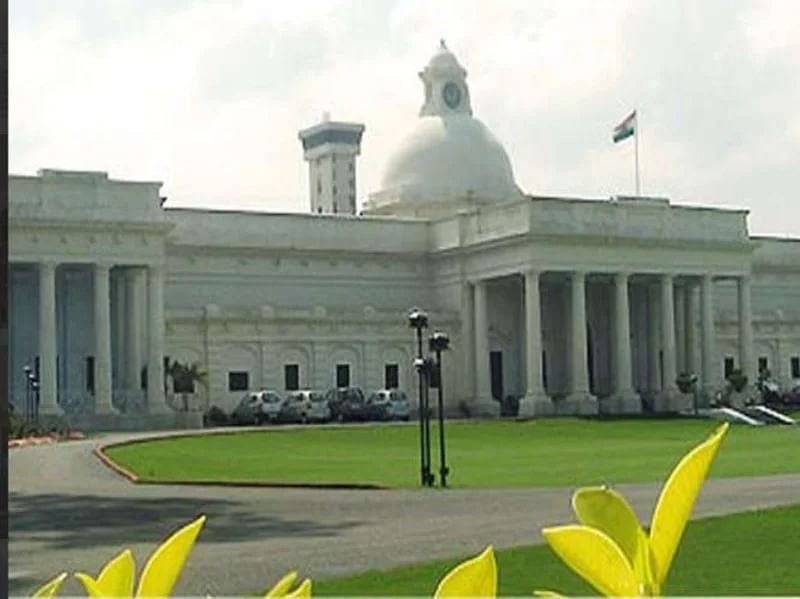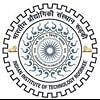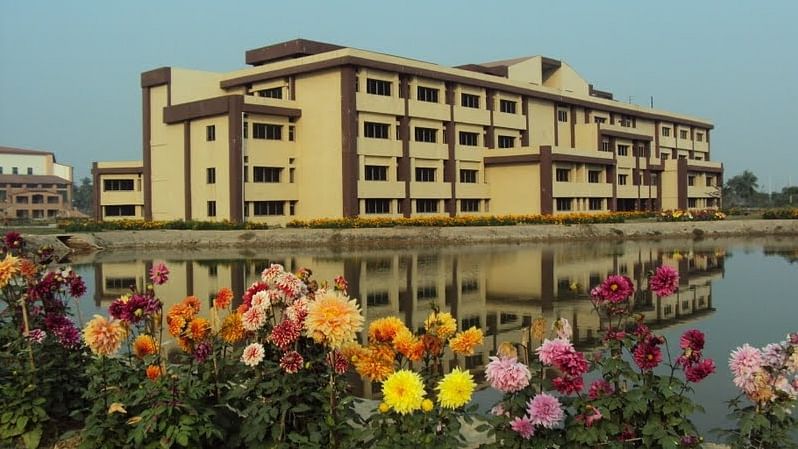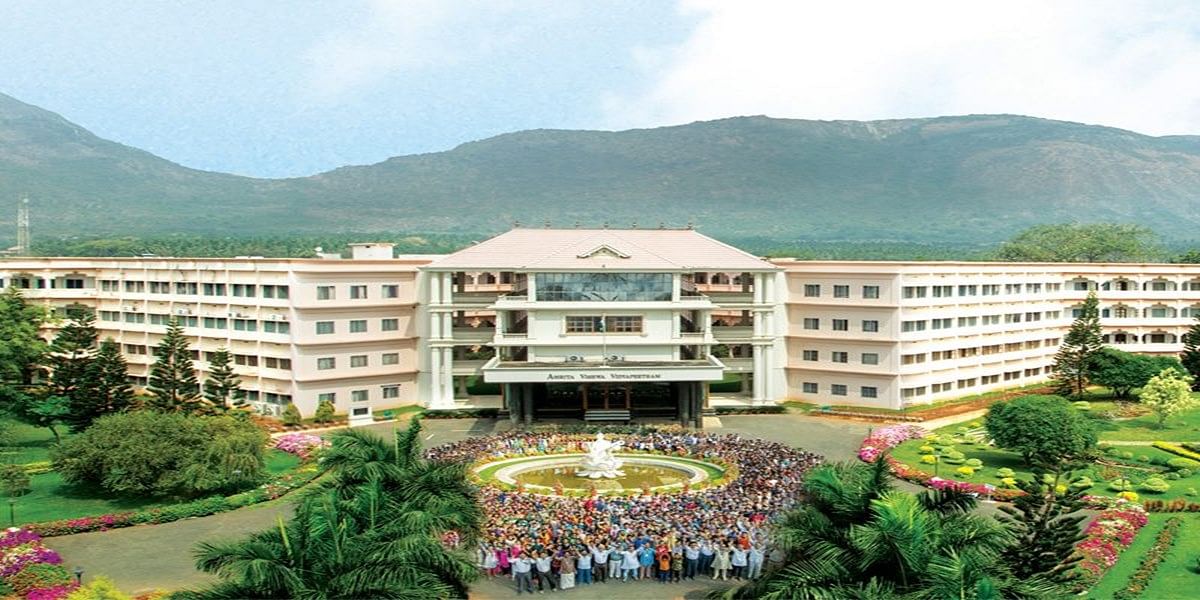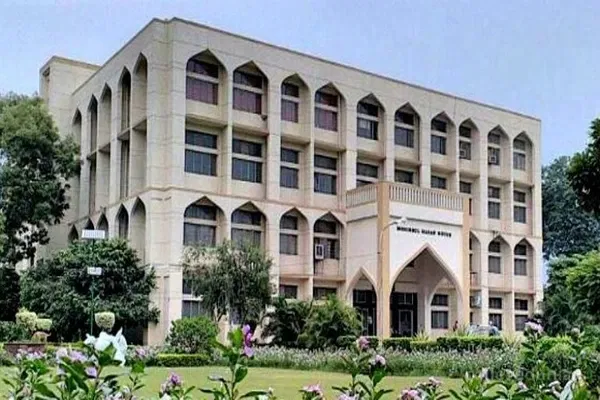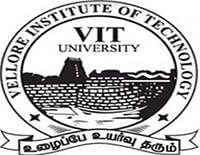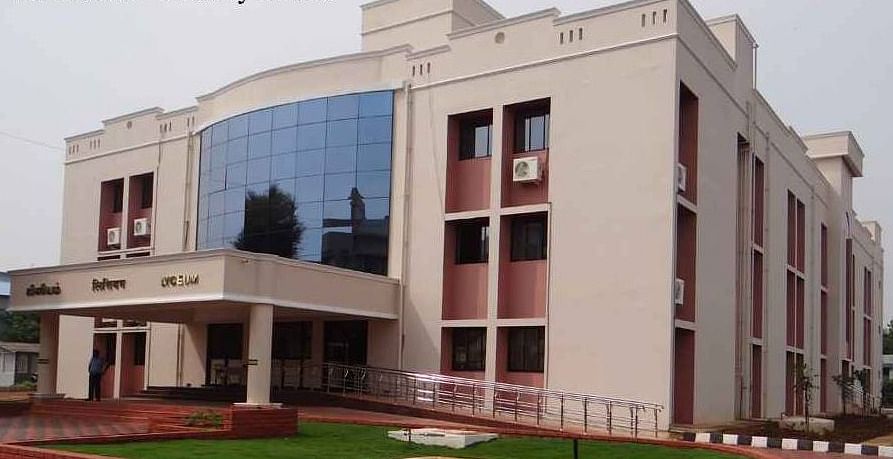B.Tech ECE Syllabus and Subjects

The BTech ECE syllabus is divided into eight semesters and includes topics such as Signal Processing, Control Systems, Networks, Analog and Digital Communication, Magnetic Systems, etc. The curriculum is structured into a combination of core subjects, elective courses, and practical topics to provide students with a holistic understanding of Electronics and Communication Engineering.
The core B.Tech ECE subjects include foundational concepts Electronic Devices, Digital System, Network Theory, Embedded Systems, etc. The elective subjects in the syllabus are program specific optional courses that students can choose from such as Wireless Sensor Networks, Data Structures, Machine Learning, etc.
The BTech ECE course equips students with the requisite expertise in designing, analyzing, and implementing electronic systems and communication networks necessary for advancement and success in this domain.
Table of Contents
Semester Wise BTech ECE Syllabus
The B.Tech ECE syllabus is based on the recommendations of the AICTE that is followed by all the institutions in India. However, there may be slight variations in the subjects and elective offerings.
The semester wise BTech Civil Engineering syllabus followed by most of the colleges in India is provided in the sections below.
BTech ECE Syllabus 1st Year
The BTech ECE first year syllabus covers fundamental concepts of science and engineering such as Physics, Mathematics, Basic Electrical Engineering, etc.
Listed below are the subjects covered in the first and second semester of B.Tech ECE syllabus 1st year.
| Semester I | Semester II |
| Physics-I (Oscillation, Waves and Optics) | Chemistry -I |
| Mathematics-I | Mathematics-II |
| Basic Electrical Engineering | Programming for Problem Solving |
| Engineering Graphics & Design | Biology for Engineers |
| English for Technical Writing | Digital Fabrication /Workshop / Manufacturing Practices |
| Design Thinking | Universal Human Values |
| IDEA Lab Workshop | Sports and Yoga or NSS/NCC |
Practical Topics for First Year B.Tech ECE
The practical topics in the B.Tech ECE 1st year syllabus include:
- Physics Lab
- Chemistry Lab
- IDEA Lab
- Programming Lab
- Digital Fabrication /Workshop / Manufacturing Practices
BTech ECE Syllabus 2nd Year
The BTech ECE second year syllabus deal with topics such as Electronic Devices, Network Theory, Analog Circuits, etc. The BTech ECE subjects covered in second year are listed below:
| Semester III | Semester IV |
| Electronic Devices | Analog Circuits |
| Digital System Design | Microcontrollers |
| Signals and Systems | Analog and Digital Communication |
| Network Theory | Micro Project |
| Probability Theory and Stochastic Processes | Numerical Techniques |
Practical Topics for Second Year B.Tech ECE
Listed below are the BTech ECE practical topics for 3rd and 4th semester:
- Electronic Devices Lab
- Digital System Design Lab
- Analog Circuits Lab
- Microcontrollers Lab
- Analog and Digital Communication
BTech ECE 3rd Year Syllabus
BTech ECE 3rd year syllabus focuses on program specific electives such as Signal Processing, Control Systems, etc. Students can also choose from a range of elective offerings depending on the institution. Listed below is the third year syllabus of B.Tech ECE course:
| Semester V | Semester VI |
| Digital Signal Processing | Computer Networks |
| Electromagnetic Waves | VLSI Design |
| Computer Architecture | Mobile Communication and Networks |
| Control Systems | Microwave Theory and Techniques/Fiber Optic Communications/Information Theory and Coding |
| Embedded Systems | Mini Project |
Practical Topics for Third Year B.Tech ECE Syllabus
Outlined below are the third year B.Tech ECE practical topics:
- Digital Signal Processing Lab
- Electromagnetic Waves Lab
- Embedded Systems Lab
- Computer Networks Lab
- VLSI Design Lab
BTech ECE 4th Year Syllabus
B.Tech ECE fourth year syllabus focuses on program specific electives such as Digital Audio Processing, Wireless Sensor Networks, Data Structures, Power Electronics, etc.
The BTech ECE 4th year syllabus is provided in the table below.
| Semester VII | Semester VIII |
| Digital Audio Processing/Introduction to MEMS/ Adaptive Signal Processing | Power Electronics/Satellite Communication/High Speed Electronics |
| Antennas and Propagation / Bio-Medical Electronics /Advanced Mobile Communications | Nanoelectronics/Data Structures/Embedded Systems |
| Digital Image Processing/Mixed Signal Design/Wireless Sensor Networks | Open Elective |
| Open Elective | Project |
| Seminar | - |
| Internship | - |
B Tech ECE Subjects
The B.tech ECE subjects encompass core engineering principles, specialised areas, practical applications, and advanced topics crucial for understanding electronics and communication systems. The detailed Btech ECE subjects are detailed in the sections below.
BTech ECE 1st Year Subjects
The first year BTech ECE subjects include foundational topics like Basic Electrical Engineering, Programming, Basic Science subjects, and more. Listed below are the B.Tech subjects and the topics covered under them.
| Subjects | Topic Covered | Subject Type |
| Physics-I (Oscillation, Waves and Optics) | Electrostatics in Vacuum, Electrostatics in a Linear Dielectric Medium, Magnetostatics, Faraday’s Law, Displacement Current, Electromagnetic Waves, Electromagnetic Theory | Core (Basic Science Course) |
| Mathematics-I | Basic Calculus, Differentiation, Integration | Core (Basic Science Course) |
| Basic Electrical Engineering | Ohm's Law and Kirchhoff’s Laws, Single Phase A.C. Circuits, Transformers, DC Machines, Three Phase Induction Motors, Sources of Electrical Power. | Core (Engineering Science Course) |
| Engineering Graphics & Design | Traditional Engineering Graphics, Computer Graphics, Engineering Drawing, Orthographic Projections, Projections of Regular Solids, Right Angular Solids, Customisation & CAD Drawing. | Core (Engineering Science Course) |
| English for Technical Writing | Vocabulary Building, Basic Writing Skills, : Identifying Common Errors in Writing, Writing Practices, Oral Communication. | Compulsory |
| Design Thinking | Basics of Design Thinking, Process of Product Design, Prototyping & Testing, Design Thinking & Customer Centricity, Feedback, Re-Design & Re-Create. | Core (Engineering Science Course) |
| IDEA Lab Workshop | Electronic System Design, EagleCAD, Basic Hand Tools, Basic Measurement Instruments, Circuit Prototyping Unit, Mechanical Cutting Process, 3D Printing and Prototyping Technology. | Compulsory |
| Chemistry -I | Atomic and Molecular Structure, Spectroscopic Techniques, Intermolecular Forces, Periodic Properties, Stereochemistry, Organics Reactions. | Core (Basic Science Course) |
| Mathematics-II | Matrices, First Order Ordinary Differential Equations, Ordinary Differential Equations of Higher Order, Differentiation, Integration. | Core (Basic Science Course) |
| Programming for Problem Solving | Introduction to Programming, Conditional Branching and Loops, Arrays (1-D, 2-D), Basic Algorithms, Searching, Basic Sorting Algorithms, Function, Recursion, Structures, Pointers. | Core (Engineering Science Course) |
| Biology for Engineers | Introduction, Classification, Genetics, Biomolecules, Enzymes, Information Transfer, Macromolecular Analysis, Metabolism, Microbiology. | Core (Basic Science Course) |
| Digital Fabrication /Workshop / Manufacturing Practices | 3D Printing (Additive Manufacturing), CAD for Additive Manufacturing, Additive Manufacturing Techniques, Materials, Additive Manufacturing Equipment, Post Processing: Requirement and Techniques, Product Quality. | Compulsory |
| Universal Human Values | Holistic vision of life, Socially responsible behaviour, Environmentally responsible work, Ethical human conduct, Having Competence and Capabilities for Maintaining Health and Hygiene. | Compulsory |
| Sports and Yoga or NSS/NCC | Introduction to Physical Education, Olympic Movement, Fundamentals of Anatomy & Physiology in Physical Education, Sports and Yoga, Kinesiology, Biomechanics & Sports, Training and Planning in Sports, Doping, Sports Medicine. | Compulsory |
B.Tech ECE Second Year Subjects
The B.Tech ECE second year subjects focus on crucial topics such as electronic devices, signals, network theory, etc. The B.Tech ECE second year subjects and their topics covered are outlined below.
| Subjects | Topic Covered | Subject Type |
| Electronic Devices | Introduction to Semiconductor Physics, E-k diagrams, Carrier Transport, P-N junction characteristics, I-V Characteristics, Bipolar Junction Transistor, Ebers Moll Model, MOSFET, Integrated Circuit Fabrication Process. | Core |
| Digital System Design | Logic Simplification and Combinational Logic Design, MSI Devices, Sequential Logic Design, Logic Families and Semiconductor Memories, VLSI Design Flow, VHDL Constructs and Codes. | Core |
| Signals and Systems | Energy and Power Signals, Properties, System Properties, LSI Systems, DTFT, Parseval’s Theorem, Laplace Transform, Sampling Theorem, Reconstruction, Applications of Signal and System Theory. | Core |
| Network Theory | Node and Mesh Analysis, Network Theorem, Trigonometric and Exponential Fourier Series, Laplace Transforms and Properties, Transient Behaviour. | Core |
| Probability Theory and Stochastic Processes | Sets, Set Operations, Probability Space, Bayes Theorem, Discrete Random Variables, Joint Distributions, Markov, Chebyshev and Chernoff bounds, Limit Theorems. | Core |
| Analog Circuits | Diode Circuits, Amplifier Models, High Frequency Transistor Models, Oscillators, Current Mirror, OP-AMP applications, Digital to Analog Converters. | Core |
| Microcontrollers | Microcomputer Systems, Direct Memory Access, Interfacing with peripherals - timer, serial I/O, parallel I/O, A/D and D/A Converters, Arithmetic Coprocessors, Concepts of Virtual Memory, RISC Processors | Core |
| Analog and Digital Communication | Signals and Systems, Amplitude Modulation Systems, Pulse Modulation, Elements of Detection Theory, Coherent Communication with Waveforms, Baseband Pulse Transmission, Bandpass Digital Modulation Schemes, Information Measures. | Core |
| Numerical Techniques | Interpolation by Polynomials, Numerical Integration, Simpson Rule, Gauss Quadrature, Linear Equations, Gauss-Seidel Methods, Nonlinear Equation, Newton-Raphson Method, Ordinary Differential Equations, Euler and Runge-Kutta Methods, Eigenvalue Problem, MATLAB. | Core |
| Micro Project | Electronics Components, Devices, Analog or Digital ICs, Micro Controller etc | Compulsory |
B.Tech ECE Third Year Subjects
The BTech ECE third year subjects include core subjects such as electromagnetic waves, control systems, etc and program specific elective courses such as Microwave Theory and Techniques, Fiber Optic Communication, etc. The third year B.Tech ECE subjects and their topics covered are listed below.
| Subjects | Topic Covered | Subject Type |
| Digital Signal Processing | Discrete Time Signals, Fast Fourier Transform Algorithm, Design of FIR Digital Filters, Application of DSP to Speech and Radar signal processing. | Core |
| Electromagnetic Waves | Transmission Lines, Maxwell’s Equations, Uniform Plane Wave, Plane Waves at a Media Interface, Waveguides, Radiation. | Core |
| Computer Architecture | Basic Structure of Computers, Instruction Sets, Processor Organisation, Control Design, Instruction Sequencing, HardWired Control, Microprogrammed Control, System Organization. | Core |
| Control Systems | Control Problem, Characteristics of Feedback Control Systems, Frequency-Response Analysis, State Variable Analysis, Optimal Control and Nonlinear Control. | Core |
| Embedded Systems | Concept, Embedded Microcontroller Cores, Embedded Memories, Embedded Systems, Technological Aspects, Interface between Analog and Digital Blocks, Design Tradeoffs. | Core |
| Computer Networks | Data Network, Physical Layer, Link Layer, ALOHA, IEEE 802 standards, Local Area Networks, Switching in Networks, Network Layer, Transport Layer, Application Layer. | Core |
| VLSI Design | VLSI; CMOS Logic, Modelling of MOS transistor, Delay and Power, Circuit Design, Subsystems Design | Core |
| Mobile Communication and Networks | Cellular Concepts, Signal Propagation, Multiple Access Schemes, MIMO and Space Time Signal Processing, Spatial Multiplexing, Performance Measures, GSM, EDGE, GPRS, IS-95, CDMA 2000, WCDMA, 3G, 4G, 5G. | Core |
| Microwave Theory and Techniques | Introduction to Microwaves, Mathematical Model of Microwave Transmission, Analysis of RF and Microwave Transmission Lines, Microwave Network Analysis, Passive and Active Microwave Devices, Microwave Design Principles, Measurements, Systems. | Elective (Program Specific Course) |
| Fiber Optic Communications | Vector Nature of Light, Ray Model, Wave Model, Optical Fibres, OTDR, Optical Sources, Optical Switches, Self-phase Modulation, EDFA, WDM Systems. | Elective (Program Specific Course) |
| Information Theory and Coding | Basics of information theory, Coding and Decoding, Network Information Theory, Broadcast Channel. | Elective (Program Specific Course) |
| Open Elective | Electives from other technical and /or emerging subjects | Elective |
| Mini Project | Electronic Design Work, Circuit Design, CAD based PCB simulation software Layout. | Compulsory |
B.Tech ECE Fourth Year Subjects
The B.Tech ECE fourth year subjects include program specific elective subjects such as Digital Audio Processing, Antennas and Propagation, Wireless Sensor Networks, etc. Listed below are the fourth year B.Tech ECE subjects and the topics covered under them.
| Subjects | Topic Covered | Subject Type |
| Digital Audio Processing | Audio Signal Characteristics, Audio Signal Acquisition, Audio/Speech Analysis and Synthesis Systems, Psychoacoustics, Applications. | Elective (Program Specific Course) |
| Introduction to MEMS | Introduction and Historical Background , Scaling Effects. Micro/Nano Sensors, Actuators and Systems overview: Review of Basic MEMS fabrication modules: Oxidation, Deposition Techniques, Lithography (LIGA), Stiction; Bulk | Elective (Program Specific Course) |
| Adaptive Signal Processing | Adaptive Filtering and Estimation, Optimal FIR, LMS, Signal Space Concepts, RLS, QR Decomposition and Systolic Array | Elective (Program Specific Course) |
| Antennas and Propagation | Fundamental Concepts, Radiation from Wires and Loops, Aperture and Reflector Antennas, Broadband Antennas, Micro Strip Antennas, Antenna Arrays, Basic Concepts of Smart Antennas, Radio Wave. | Elective (Program Specific Course) |
| Bio-Medical Electronics | Bio-signal Parameters, Cardio-vascular system and measurements, ECG signal acquisitions, Central Nervous Systems, Receptors, EEG amplifier, Muscle Classification, Auditory and Vision System. | Elective (Program Specific Course) |
| Advanced Mobile Communications | Mobile Communications Overview, 5G Communication, 5g Network, Current State and Challenges | Elective (Program Specific Course) |
| Digital Image Processing | Digital Image Fundamentals, Image Enhancements and Filtering, Color Image Processing-Color models, Image Segmentation, Wavelets and Multi-resolution image processing, Image Compression-Redundancy, Video Coding, Video Segmentation. | Elective (Program Specific Course) |
| Mixed Signal Design | Analog and discrete-time signal processing, Switched-capacitor filters, Data Converters, ADCs, Mixed-Signal layout, Basics of PLL, Analog PLLs; Digital PLLs; DLLs. | Elective (Program Specific Course) |
| Wireless Sensor Networks | Sensor Networks, Mobile Adhoc Networks (MANETs), Enabling technologies for Wireless Sensor Network, Dissemination protocol for large sensor networks, Design Principles for WSNs, Architecture. | Elective (Program Specific Course) |
| Power Electronics | Characteristics of Semiconductor Power Devices, Controlled Rectifiers, Choppers, Single-phase Inverters, Switching Power Supplies, Applications | Elective (Program Specific Course) |
| Satellite Communication | Introduction to Satellite Communication, Orbital Mechanics, Satellite subsystems, Typical Phenomena in Satellite Communication, Modulation and Multiple Access Schemes | Elective (Program Specific Course) |
| High Speed Electronics | Transmission Line Theory, Noise Analysis, Devices, RF Amplifier Design, Power Amplifiers, Mixers, Printed Circuit Board Anatomy, | Elective (Program Specific Course) |
| Nanoelectronics | Introduction, Meso Structures, Basics of Quantum Mechanics: Schrodinger equation, Density of States.Particle in a box Concepts, Degeneracy.Band Theory of Solids. Kronig-Penney Model. Brillouin Zones | Elective (Program Specific Course) |
| Data Structures | Introduction and Elementary Data Structures, Applications of Stacks, Queues and Linked lists, Trees, Graph Theory. | Elective (Program Specific Course) |
| Embedded Systems | Features, Design Metrics, Embedded Processors, Instruction Set, Interfacing, Real-Time System Design, Embedded Programming, Hardware-Software Co-Design. | Elective (Program Specific Course) |
| Open Elective | Electives from other technical and /or emerging subjects | Elective |
| Project | Literature Survey, Detailed Objectives, Project Specifications, Design, Proof of Concept, Developed System/Algorithm, Results, Contributions, and Innovations in Project Work. | Compulsory |
Course Structure
The B.Tech ECE course structure is designed strategically for a period of four years equipping students with a comprehensive understanding of foundational and advanced concepts in electronics and communication engineering. The B.Tech ECE course structure can be outlined as follows:
- VIII Semesters
- Core Subjects
- Elective Subjects
- Practicals
- Internships
- Project
BTech ECE Teaching Methodology and Techniques
The B.Tech ECE course requires diverse teaching approaches to facilitate comprehensive learning and understanding of complex engineering concepts. In addition to traditional lecture based methods of instruction, students are exposed to various methods and techniques which aim at enhancing their practical skills. Some of the B.Tech ECE teaching methodology and techniques integrated into the B.Tech ECE program include:
- Lectures
- Laboratory
- Case Studies
- Group Discussion
- Guest Lecturers
- Industrial Visits
- Workshops
- Seminars
B.Tech Projects For ECE
Projects play a vital role in the B.Tech ECE course enabling students to translate theoretical knowledge into practical applications within the field. Some of the B.Tech projects for ECE are as follows:
- Development of an Automated Home Security System using IoT.
- Design and Optimization of Wireless Sensor Networks for Environmental Monitoring.
- Design and Implementation of a Biomedical Monitoring System for Remote Health Monitoring.
- Design and Optimization of Antenna Arrays for Wireless Communication Applications.
- Implementation of Image Processing Algorithms for Facial Recognition Security Systems.
- Design and Testing of RFID-based Access Control Systems.
BTech ECE Books
Some of the best B.Tech ECE books that cover the important concepts and fundamentals of electronics and communication engineering include books by authors such as R.Anand, AVN Tilak, S.K. Mitra, etc.
The year-wise B.Tech ECE books used in most colleges offering the course are listed below:
BTech ECE Books First Year
The first year B.Tech ECE books cover fundamental topics such as electrodynamics, basic electrical engineering, etc. The B.Tech ECE books are provided in the table below:
| Books | Authors | Topics Covered |
| Introduction to Electrodynamics | David Griffiths | Concepts of Electromagnetism, Electromagnetic Fields and Waves, Maxwell’s Equation, Electrodynamics Principles and Applications. |
| Basic Electrical Engineering | Ritu Sahdev | Electrical Circuits and Components, Ohm’s Law and Kirchoff’s Laws, AC and DC circuits, Transformers and Electrical Machines. |
| The C Programming Language | Brian W. Kernighan and Dennis M. Ritchie | Basics of C programming language, Control Structures and Functions, Arrays, Pointers, and Strings, File Handling and Structures. |
| Additive Manufacturing Technologies | Lan Gibson, David W. Rosen and Brent Stucker | Additive Manufacturing , 3D Printing, Laser Sintering, Applications in Engineering and Manufacturing. |
| Engineering Graphics & Design | Jain, Maheshwari, Gautam | Engineering Drawing Fundamentals, Orthographic Projection, Isometric and Perspective Views, CAD Software Applications |
B.Tech ECE Books Second Year
The B.Tech ECE second year books cover advanced electronics and communication systems topics such as digital electronics, signals and systems, etc. Listed below are some of the B.Tech ECE second year books.
| Books | Authors | Topics Covered |
| Solid State Electronic Devices | G. Streetman, and S. K. Banerjee | Semiconductor Physics and Devices, PN Junctions and Diodes, Bipolar and Field-Effect Transistors, Semiconductor materials and fabrication techniques. |
| Digital Electronics | R. Anand | Boolean Algebra and Logic Gates, Combinational and Sequential Circuits, Flip-Flops and Registers, Logic Families and Digital Systems Design |
| Signals and Systems | R.F. Ziemer, W.H. Tranter and D.R. Fannin | Signal Classification and Properties, Fourier Series and Transforms, LTI systems and convolution, Frequency Response and Filters. |
| Design of Analog Circuits | A.V.N. Tilak | Principles of Analog Circuit Design, Amplifiers and Oscillators, Feedback and Stability, OP-amp Circuits and Applications. |
| Microprocessors Interfacing | Douglas Hall | Microprocessors architecture and instruction set, Memory Interfacing Techniques, I/O Interfacing and Peripheral Devices, Interrupts and DMA. |
BTech ECE Books Third Year
The third-year B.Tech ECE books explore advanced areas of engineering such as Digital Signal Processing, Electromagnetic Waves, Computer Networks, etc. Listed below are some of the important books for third year B.Tech ECE.
| Books | Authors | Topics Covered |
| Digital Signal Processing | S.K. Mitra | Discrete-time signals and systems, Z-transform and discrete Fourier Transform, Digital Filter Design Techniques, Multirate Signal Processing. |
| Electromagnetic Waves | R.K. Shevgaonkar | Maxwell’s Equations and Electromagnetic Wave Propagation, Transmission Lines and Waveguides, Antennas and Radiation Patterns, Microwave Engineering Principles. |
| Control Systems: Principles and Design | M. Gopal | Control System Modelling and Analysis, Time Domain and Frequency Domain Analysis, PID Controllers, Stability Criteria. |
| Embedded Microcomputer System | J.W. Valvano | Microcontroller Architecture, Programming, Embedded System Design Methodologies, Real-Time Operating Systems, Interfacing Techniques and Peripherals. |
| Computer Networks | Andrew Tanenbaum | Network Architecture and OSI Model, Data Link Layer Protocols, Network Layer and Routing Algorithms, Transport Layer Protocols and Congestion Control. |
B.Tech ECE Books Fourth Year
The fourth-year B.Tech ECE book focuses on topics such as Power Electronics, Data Structures, Signal Processing, etc. Listed below are some of the B.Tech ECE books used in the fourth-year.
| Books | Authors | Topics Covered |
| Microwave Circuits | R.E. Collins | Microwave Transmission Lines and Components, Microwave Network Analysis, Microwave Semiconductor Devices, Microwave Amplifier and Oscillator Design. |
| Adaptive Signal Processing | Bernard Widrow and Samuel D. Stearns | Adaptive Filter Theory, LMS and RLS Algorithm, Adaptive Equalization, Noise Cancellation, Communication and Control Systems. |
| CMOS Mixed Signal Circuit Design | R.Jacob Baker | CMOS Device Modelling and Fabrication, Analog and Digital CMOS Circuit Design, Mixed-Signal Integrated Circuit Techniques. |
| Power Electronics | P.S.Bimbhra | Power Semiconductor Devices, AC-DC and DC-DC converter topologies, Inverters and Motor Control, Switch-mode Power Supply Design. |
| Data Structures | R.S. Salaria | Abstract Data Types, Data Structures, Arrays, Stacks, Queues, Linked Lists, Trees, Graphs, and Hashing Techniques, Sorting and Searching Algorithms. |
Top B.Tech Electronics and Communication Engineering Colleges
Top Engineering Entrance Exams
B.Tech ECE Fee Structure
FAQs on B.Tech ECE Syllabus and Subjects
Q: What is the syllabus for ECE 1st year?
Q: Does ECE have coding?
Q: What are the subjects in ECE B Tech?
Q: Is there chemistry in ECE?
Q: What is the hardest subject in B.Tech ECE?
Q: What are the elective subjects in B.Tech ECE?
Q: How are students evaluated in the B.Tech electronics and communication engineering?
